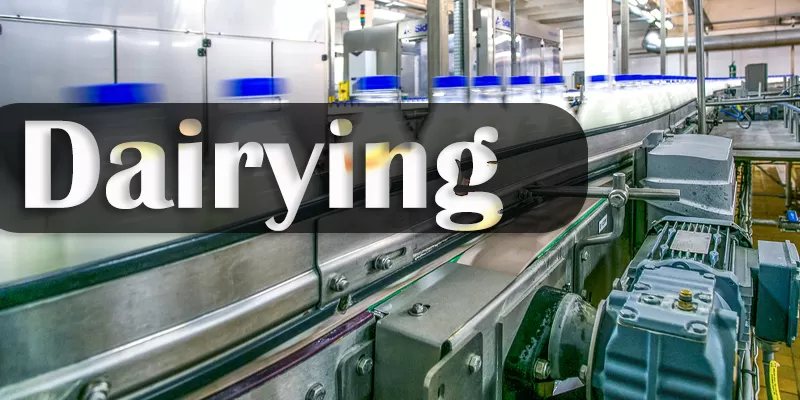
ITI Trade: Dairying
The ITI Dairying trade is a job-oriented vocational course powered by NCVT (National Council for Vocational Training). It is designed to prepare candidates for employment in both the government and private sectors. This trade not only enhances employability but also empowers individuals to pursue self-employment opportunities in the dairy industry.
The Dairying trade is meticulously crafted to meet the industrial requirements of Indian industries as well as international markets. With a focus on skill development, this program equips trainees with the knowledge and practical skills essential for success in the dairy sector.
Scope of Employment
The Dairying trade offers a wide range of employment opportunities, including:
- Self-employment
- Contractual employment
- Industrial jobs
On successful completion of the course, candidates can find gainful employment in various roles such as:
- Dairy Worker, General
- Separator Operator (Separator Man)
- Other Non-Farm Dairy Workers
This ITI trade is a powerful tool for self-empowerment, helping individuals to become economically independent while contributing to the dairy industry at both national and international levels.
Trade Summary: Dairying (ITI)
This trade equips trainees with comprehensive skills and knowledge required for dairy farm management and milk processing. The training is divided into two semesters, covering both fundamental and advanced aspects of dairying.
Semester I: Basic Dairy Farming and Animal Handling
- Recognize different breeds of cows and buffaloes, including their characteristics and productivity.
- Handle newborn calves, ensuring proper sanitation, feeding, and early care.
- Plan and arrange the layout of various types of animal housing for optimal management and hygiene.
- Groom and wash animals, along with the cleaning and sanitization of animal sheds to maintain health and hygiene standards.
- Observe and identify symptoms of common diseases in dairy animals for timely intervention and care.
- Prepare balanced feed and fodder, ensuring nutritional requirements for dairy animals are met.
- Use various tools and equipment such as cutting, drilling, tapping, grinding tools, couplers, and valves commonly required in dairy operations.
- Maintain basic electrical wiring and operate electrical machinery used in dairy farms and processing units.
- Operate and maintain boilers and associated machinery crucial for dairy operations.
Semester II: Milk Processing and Advanced Dairy Operations
- Operate and maintain refrigeration and air conditioning systems used in dairy plants for milk preservation.
- Use and maintain instrumentation systems employed in the dairy industry for process control and quality assurance.
- Collect milk samples and perform various quality control tests to ensure standards are met.
- Determine specific gravity of milk and perform additional testing techniques to evaluate milk quality.
- Count different types of microorganisms present in milk samples, ensuring milk safety and quality.
- Conduct COB (Clot on Boiling) and MBR (Methylene Blue Reduction) tests to assess milk quality.
- Carry out pasteurization of milk to eliminate pathogens and improve shelf life.
- Prepare sterilized, toned, and double toned milk, followed by hygienic packaging.
- Produce butter, ghee, and other dairy products using traditional and modern methods.
- Maintain records and balance sheets, and handle other important documentation relevant to dairy operations and management.
Final Phase
- Revision
- Project Work
- Examination
This well-rounded training ensures that candidates develop the technical skills, scientific knowledge, and management capabilities required to excel in the dairy industry, both domestically and internationally.
